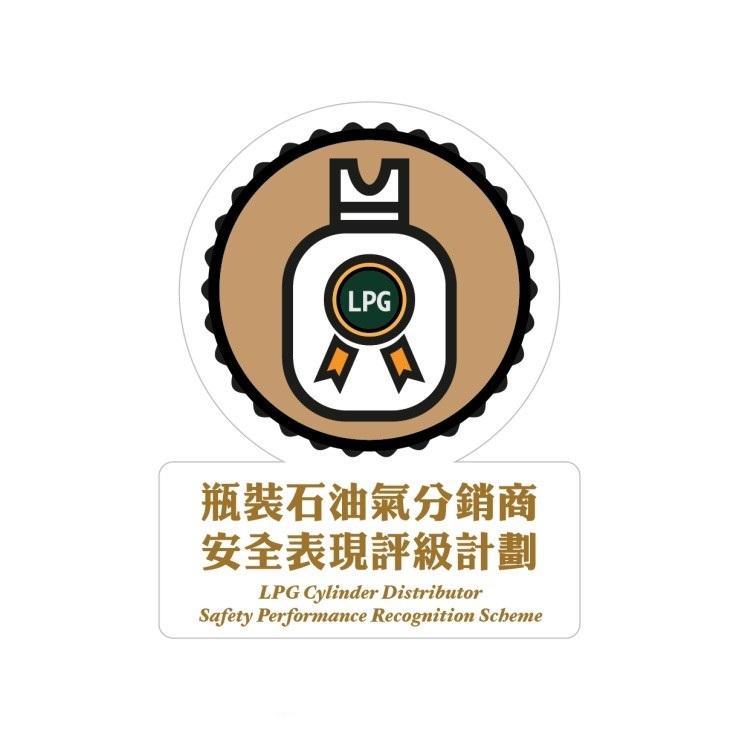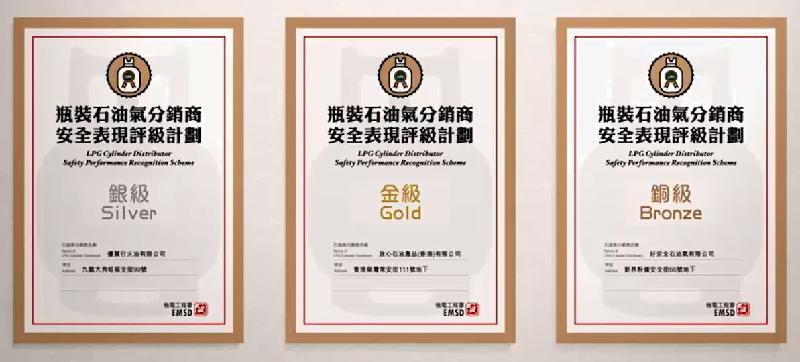EMSD announces latest rating results of LPG Cylinder Distributor Safety Performance Recognition Scheme (with photos)
The Electrical and Mechanical Services Department (EMSD) announced today (March 27) the rating results of the Liquefied Petroleum Gas (LPG) Cylinder Distributor Safety Performance Recognition Scheme for 2019 for public reference.
All the 167 distributors under the five registered gas supply companies supplying cylinder LPG in Hong Kong joined the Scheme. Among the participating distributors, 54 attained the highest level of safety performance, the gold rating, while 19 and 94 received silver and bronze ratings respectively. Compared with last year, six more distributors have attained gold ratings.
Under the Scheme, independent auditing companies commissioned by the registered gas supply companies rated the distributors based on their performance in various aspects such as LPG cylinder delivery arrangements, safety inspections of gas appliances, record keeping of customer receipts, employee training and maintaining gas safety operation records. The rating results were verified by the EMSD.
Distributors will display the Scheme's logo and the rating certificate outside and inside their shops respectively for easy identification by the general public.
Organised by the EMSD and registered gas supply companies, the Scheme aims to further enhance the safety performance of the LPG cylinder trade. Details of the Scheme and the ratings of LPG cylinder distributors are available at the EMSD website (www.emsd.gov.hk/en/media/lpgcdsprs) and the EMSD mobile application "E&M Connect".

